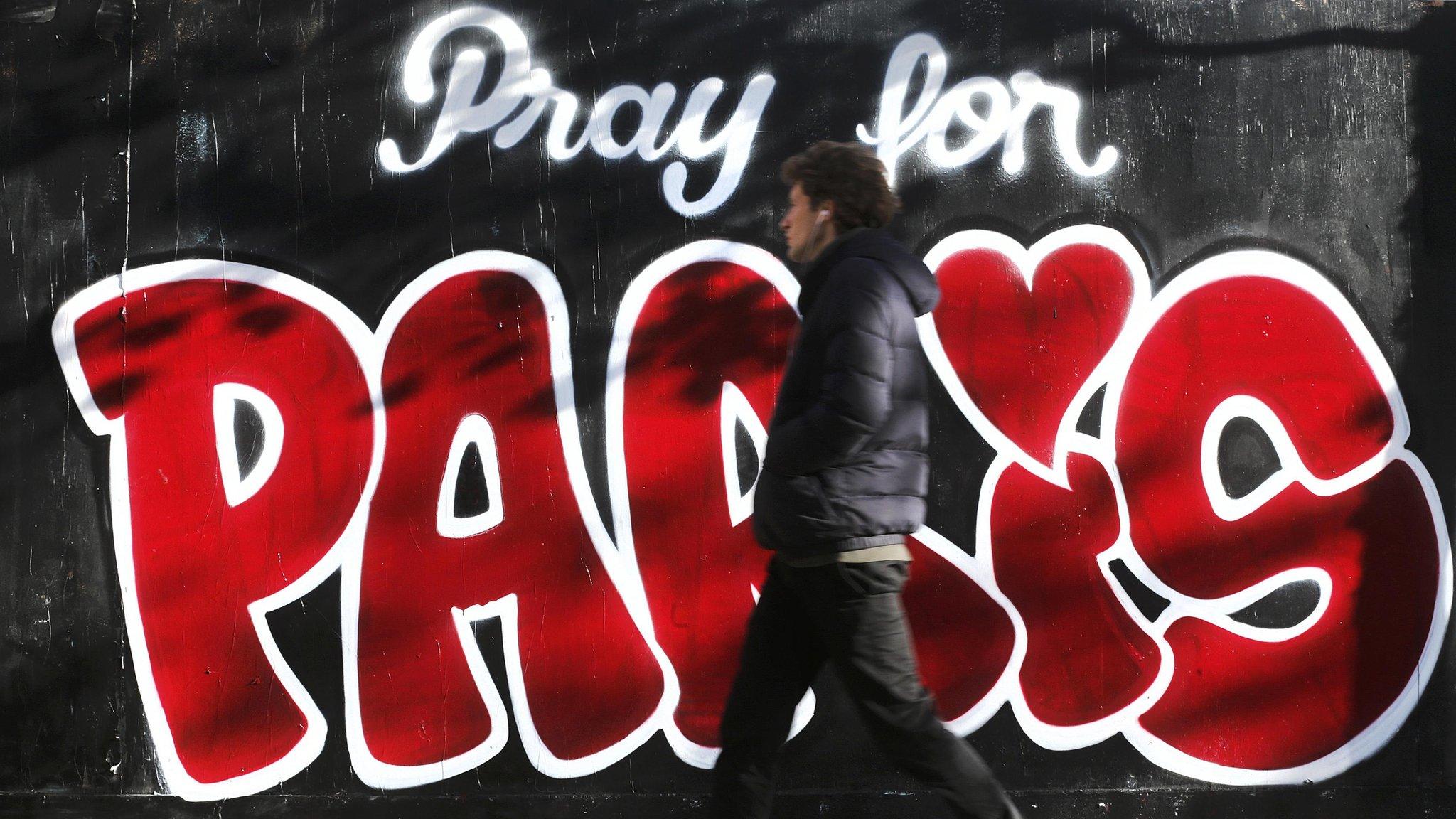Paris attacks: Doctor describes moment first casualties arrived
- Published
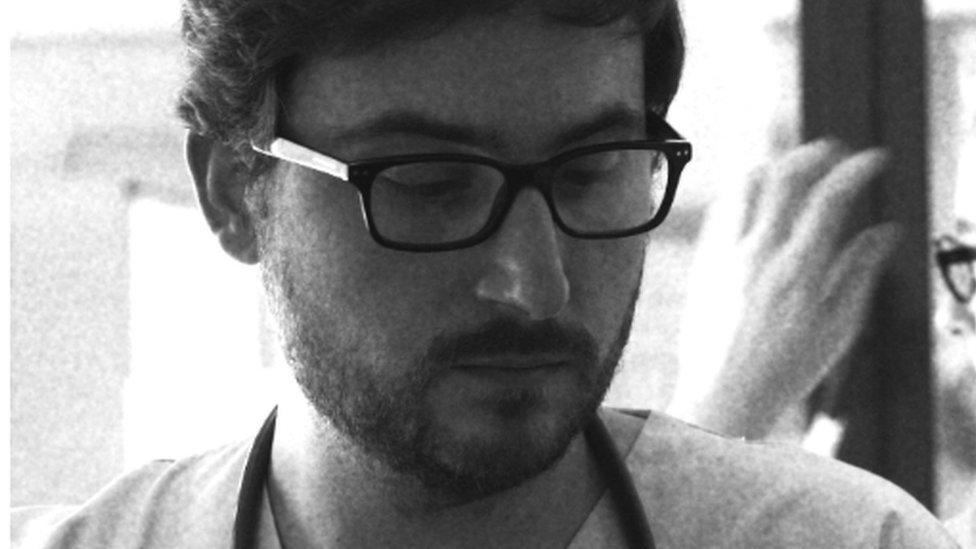
Dr Youri Yordanov helped 50 patients that night
Dr Youri Yordanov started his Friday night shift at the Saint-Antoine emergency department in Paris expecting the usual mixture of older, frail patients and midnight drunks.
But this Friday night, his hospital - close to many popular bars and restaurants - was just 200m away from one of the devastating gun attacks that shook the city.
Three hours into his shift Dr Yordanov was caring for a "very nice old lady who was extremely sick" when a medical student ran towards him shouting incomprehensibly.
He didn't understand. But then he saw the patients who had just arrived.
Victims' stories
The first was a lady in her 30s. She had three gunshot wounds.
He said: "I have never seen anything like it before.
"Her shoulder was a mess of blood and bones."
Dr Yordanov is just 35. He had never dealt with firearm wounds before. But as the oldest doctor in the department at that time, he had to take charge.
At first the patients came in walking, despite their wounds - helped by friends, or remarkably managing to hail cabs.
But as the night drew on ambulances started to arrive, ferrying in those more severely-ill.
Dr Yordanov says he doesn't know how some people survived.
One had a bullet lodged between her skull and skin.
"The fact she was there - that was a miracle," he said.
Another woman was covered in blood head to toe. He started to check for injuries.
But she told him: "It's not my blood. It was my husband's blood. He stood in front of me."
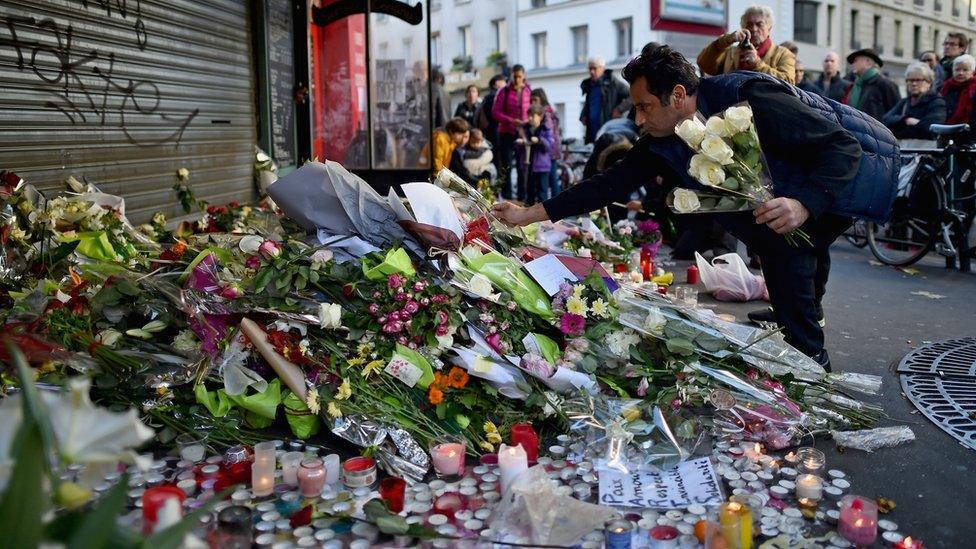
People in Paris have held vigils and left tributes to victims at the scenes of the attacks
Dr Yordanov says the most difficult part was not just dealing with patients with complex injuries.
Difficult too were the patients who were less badly wounded but who could talk.
It was through their stories that he understood the horrors that had unfolded nearby.
He called quickly for reinforcements from all around the hospital.
And many volunteers came in from outside - even though the journey was dangerous.
Many were medical students who had been at restaurants nearby, instinct taking them to the nearest place they could be of help.
The department saw around 50 patients in total, all with gunshot injuries.
'Trained and prepared'
Dr Yordanov says though the situation was unfamiliar to him, after five initial minutes of feeling terrified his training kicked in.
He added: "This is what we do. This is our job.
"We stabilise the patient, we start treatment and we call in the surgeons when needed.
"We do this every day - this is just on a different and unexpected scale."
Dr Yordanov says being prepared is part of the job.
In fact earlier that day his out-of-hospital colleagues had taken part in a simulation exercise to help prepare for the possibility of multiple shootings.
According to Dr Yordanov these training sessions happen at least twice a year.
And though he had been part of one in the past, he had never expected it to turn into reality.
He says he is extremely proud of his colleagues and the emergency system Paris has in place.
Some doctors work as first-responders, acting as the first people on the scene and often treating patients at the roadside.
And on Friday evening the preparedness in place ensured patients were dispatched evenly to almost 20 hospitals across the region.
This meant surgeons and medical staff were not overwhelmed.
Psychological wounds
Back at Dr Yordanov's hospital, three patients who were wounded in Friday's attacks are in intensive care. One is extremely unwell.
But many patients who underwent less complex surgery have already been discharged.
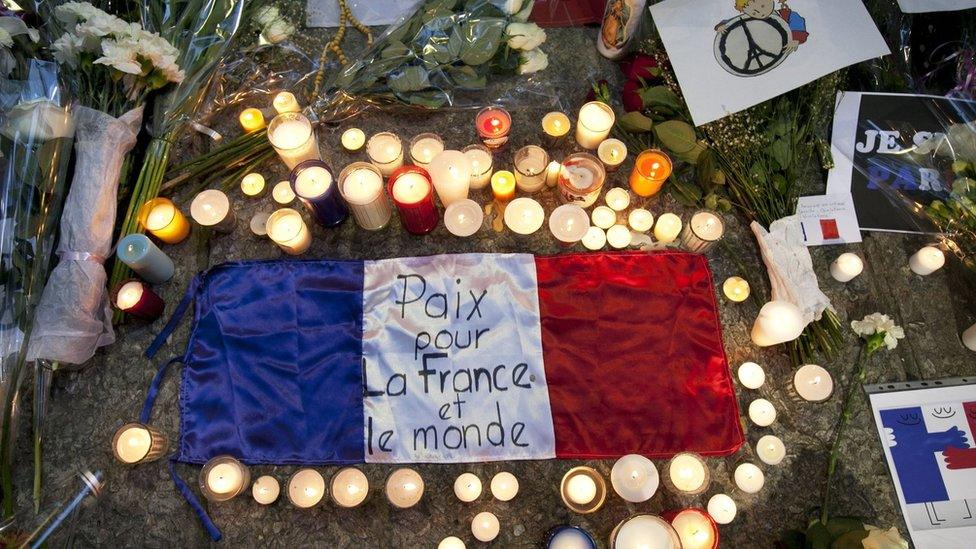
Messages of support have come in from around the globe
Inevitably patients and medics will take their psychological wounds home.
There are numbers they can call and people they can go to for support.
In fact a psychiatrist at the hospital started counselling and debriefing patients just hours after the attack.
But how will Dr Yordanov cope?
On Monday night he went out for drinks with other medical colleagues who were on Friday's front line.
The bar they chose was very close to one involved in the tragedy.
"That's our answer. We are not going to change our lives."
- Published17 November 2015
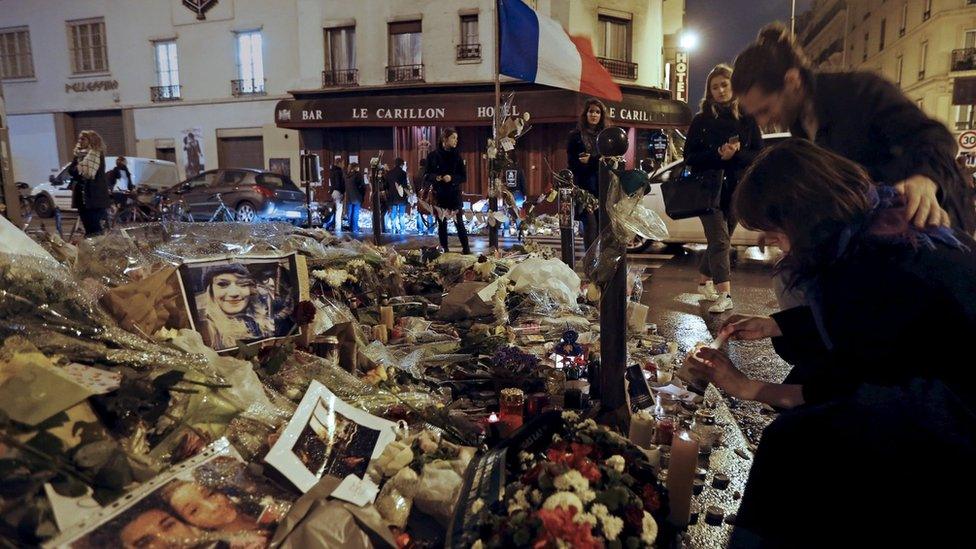
- Published27 April 2016
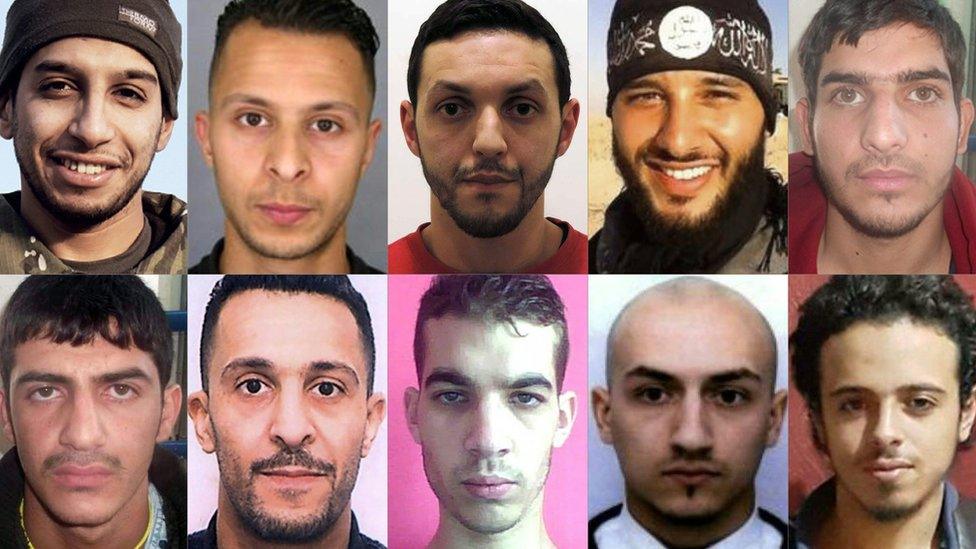
- Published17 November 2015
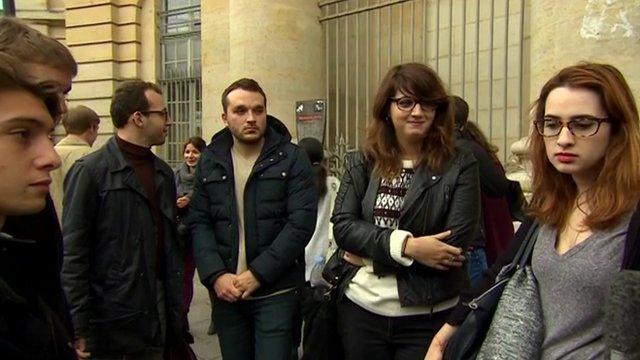
- Published16 November 2015
